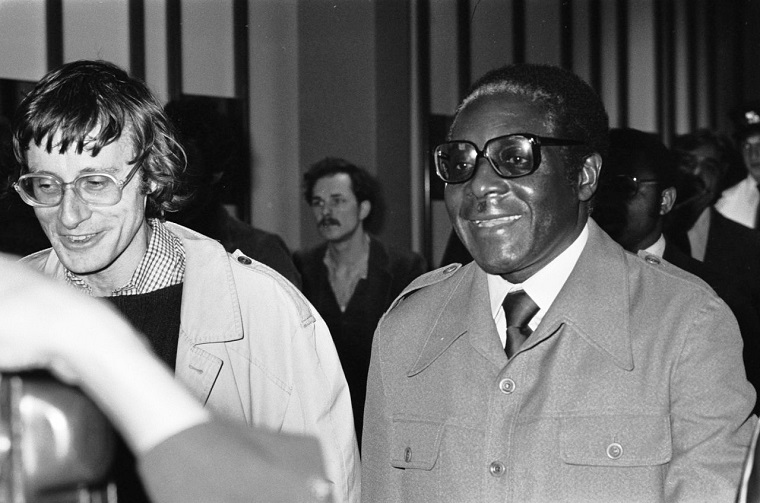When Robert Mugabe was recently forced out of office after 37 years of increasingly brutal rule in Zimbabwe, he had been in the job so long that few recall how he got there. Fewer still remember that it was Henry Kissinger, of all people, whose negotiations to achieve black majority rule in Rhodesia, later Zimbabwe, helped to facilitate Mugabe’s ascent.
President Gerald Ford and Secretary of State Kissinger judged 1975 to be a pivotal moment as a new front in the Cold War threatened to open up in the mineral rich nations of Southern Africa. In 1974, a left-wing coup in Portugal spurred the demise of its colonial domination of Mozambique, where an indigenous Marxist group rapidly gained power. Almost concurrently, an insurgent group in Angola quickly expanded it influence with significant Soviet military aid and what would ultimately amount to some twenty thousand Cuban combat troops. Through Washington’s Cold War lens, two important coastal nations in Southern Africa, Angola on the west coast and Mozambique on the east, were fast falling under Soviet and Cuban influence.
A Soviet-sponsored Cuban alliance with African Marxists alarmed Kissinger and Ford as well as many leaders of newly decolonized African nations in this region such as Tanzania and Zambia, not to mention the white regimes of Rhodesia and South Africa. Even if the prime targets of such guerrilla groups were the white-ruled regimes, their spread to neighboring countries, such as Zambia and Tanzania, could destabilize and even overthrow such fragile “host” governments. US inaction could cede dominant influence over this mineral-rich region to the Soviets, suggesting a post-Vietnam loss of national will.
Beyond classical geopolitics, there was widespread discussion of a coming “race war” in Southern Africa, especially in Rhodesia. Apart from alarmist talk in popular circles, the normally sober diplomat George Kennan raised the specter of “some form of genocide” for whites and “a cost in bloodshed so appalling as to rock the stability of international life.”
Along with South Africa and Zaire, the Americans launched covert military actions to counter the communist presence in Angola. When news of the US initiative inevitably leaked, the Congress, scarred by the just-ended Vietnam War, promptly blocked it.
Therefore, motivated by a combination of Cold War, democratic, and humanitarian interests, Kissinger switched gears from covert and military to overt and diplomatic. In effect, he offered a deal to Tanzania, Zambia, and the other “Frontline” African states that bordered the minority-ruled regimes in the region. If the Frontline states would keep out foreign troops—Cuban, Soviet, or any other—Kissinger would embark on an intensive negotiation campaign to achieve black majority rule in Rhodesia.
This was a formidable negotiation challenge, one that the British had repeatedly failed to meet once Rhodesia had unilaterally broken away from London, its former colonial master. Here’s why: in Rhodesia, some 270,000 whites had ruled over six million black Africans. Then-Prime Minister Ian Smith had confidently asserted: “The white man is master of Rhodesia. He has built it, and he intends to keep it.” On March 20, 1976, Smith was categorical: “I don't believe in black majority rule ever in Rhodesia, not in a thousand years.”
Continued next page
(667 VIEWS)
